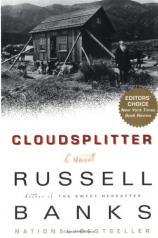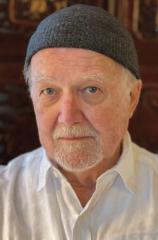Reading Group Guide
Discussion Questions
Cloudsplitter

1. How reliable a narrator is Owen Brown? What parts of his narrative do you find circumspect?
2. Owen states that he does not believe in God, that for him, his father was his God. Is this an apt analogy? If so, how would you characterize his faith in his God?
3. With regard to the Kansas Wars, Owen writes, "It was no longer clear to me: were we doing this for them, the Negroes; or were we simply using them as an excuse to commit vile crimes against one another? Was our true nature that of the man who sacrifices himself and others for his principles; or was it that of the criminal?" What do you think, and why?
4. Owen claims, in his account of his life, to settle once and for all the question of his father's sanity. Does he do so? Do you think his father is sane or insane? Is Owen sane? What sort of criteria would you use to differentiate moral conviction from insanity?
5. Owen writes of his father and the mountain, Tawanus: "I have come over the years to associate the two, as if each, mountain and man, were a portrait of the other and the two, reduced to their simplest outlines, were a single, runic inscription which I must, before I die, decipher, or I will not know the meaning of my own existence or its worth." What might he mean by this? Why is the novel entitled Cloudsplitter?
6. In his Author's Note, Russell Banks makes it clear that Cloudsplitter is a work of fiction, and not a version or interpretation of history. Nevertheless, the novel contains much historical information. What is the relationship between fiction and historical fact in Cloudsplitter? Is "historical fiction" a deceptive distortion of history, or does it add to our understanding of history? Of the present?
Cloudsplitter
- Publication Date: January 27, 1999
- Paperback: 768 pages
- Publisher: Harper Perennial
- ISBN-10: 0060930861
- ISBN-13: 9780060930868








